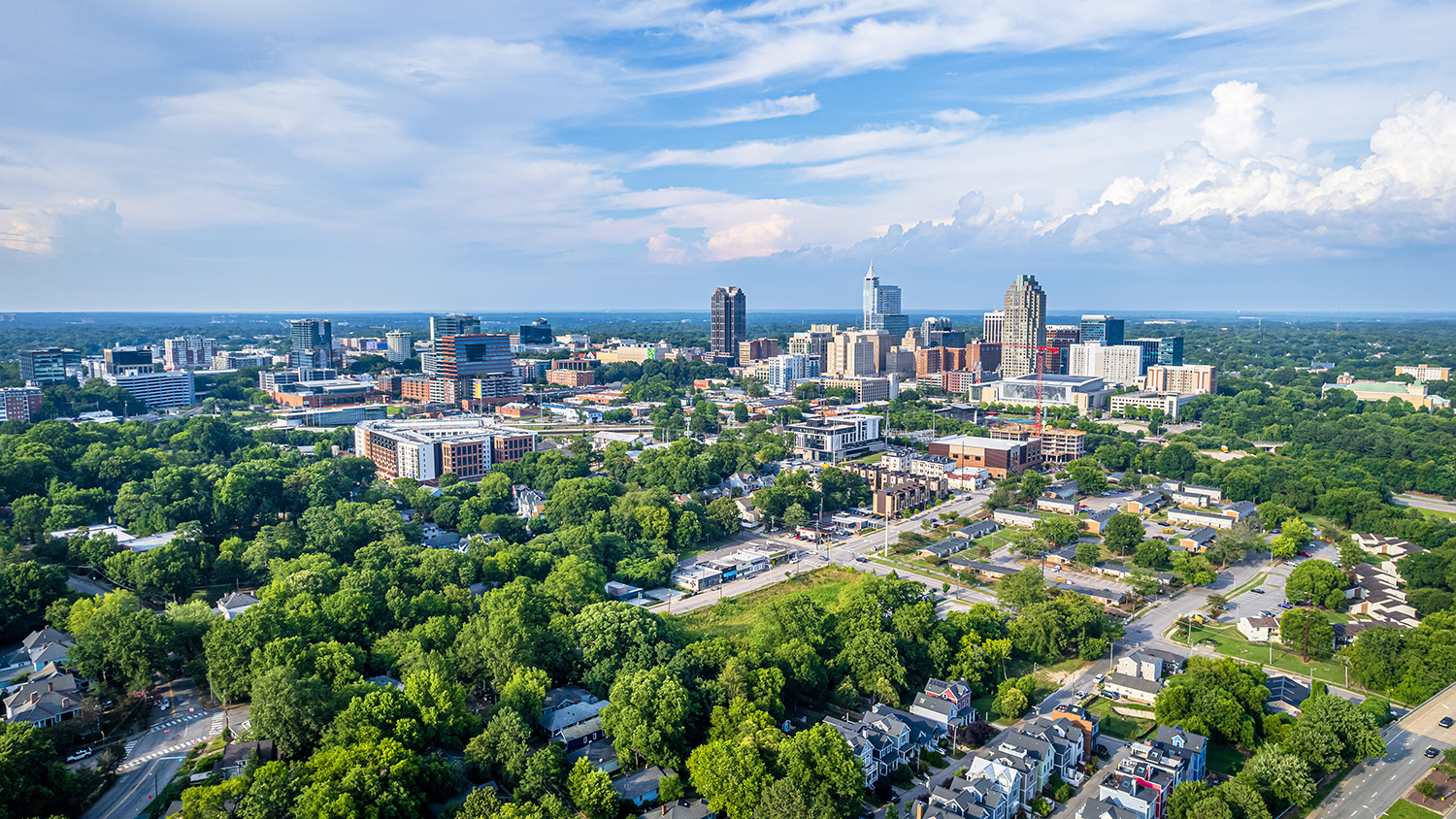Tourism is Booming in Raleigh. Here’s Why

The city of Raleigh is rising as one of the best cities to visit in North America — in large part because of its increased investment in the local community’s arts, culture and dining scene and natural amenities, according to one NC State professor.
“Raleigh and its peer municipalities inside Wake County have shown decisive recovery from the downturn of the pandemic, and most importantly, they have shown a growing commitment to fueling local grassroots community involvement in the planning and ownership of tourism,” said Duarte Morais, a professor of equitable and sustainable tourism and lead investigator of the People-First Tourism Lab at NC State.
Morais and his partners at the People-First Tourism Lab recently teamed up with the Greater Raleigh Convention and Visitors Bureau (GRCVB) to nominate Raleigh for the designation of “North America’s Leading City Destination” as part of the 31st annual World Travel Awards, the travel industry’s most prestigious awards program.
Raleigh faces competition from eight other cities, including: Chicago, Illinois; Las Vegas, Nevada; Miami Beach, Florida; New Orleans, Louisiana; New York City, New York; Orlando, Florida; Seattle, Washington; and Vancouver, Canada. The designation is awarded to the city with the most votes. Voting is open to the public. The poll closes on April 7, 2024.
From its more than 150 downtown restaurants to its variety of museums and other cultural sites, Raleigh has much to offer to visitors. It was recently ranked #9 among the South’s best cities by Southern Living magazine. GRCVB, the official and accredited destination marketing organization for all of Wake County, has used its influence to increase tourism spending in Raleigh by 40% from 2020 to 2021 and another 26% from 2021 to 2022.
“The leadership of the Greater Raleigh Convention and Visitors Bureau appear to embrace their role as stewards of this destination,” Morais said. “That’s why we are fortunate to live in, and collaborate with, this destination, and that’s why we should celebrate and support its nomination as ‘North America’s Leading City Destination.’”
As part of its strategic plan to boost Raleigh’s tourism industry, GRCVB has collaborated with Morais and his partners at People-First Tourism for nearly a decade to recruit, mentor and market more than 100 local microentrepreneurs (farmers, creatives, and makers) that offer multiple genuine experiences to visitors and residents weekly.
Research shows that tourism often fails to generate equitable and sustainable prosperity in destination communities, according to Morais. Tourism microentrepreneurship can be a decisive factor to fix this problem. That’s why he co-founded People-First Tourism with three other NC State professors in 2015.
“Tourists have become evermore committed to having intimate cultural experiences that result in personal growth and leave positive impacts in the destination community. This has been true to a small segment of the travel market for a long, long, long time; but this market trend blossomed with the COVID pandemic,” Morais said.
Morais added, “People-First Tourism is dedicated to understanding how to develop hyperlocal experiences, services and goods, and how to market them to tourists and the tourism industry to ultimately make destinations more competitive and more beneficial to their local residents.”
Through its website, www.peoplefirsttourism.com, users can learn about and book experiences with microentreprenuers across North Carolina. The experiences currently range from a guided mezcal tasting at Gallo Pelón in downtown Raleigh to a summer garden seeding workshop at Wrenn’s Farm in Zebulon.
People-First Tourism also offers experiences outside of the Raleigh area, with users now able to book reservations with microentrepenuers in Johnston County, which is located about an hour away from Wake County, and Rutherford County, which is located in the southwestern area of North Carolina near Charlotte.
“We have been developing similar relationships with other destination communities in North Carolina to extend NC State’s service to the state and to inspire a revolution in the way tourism is studied and managed globally,” Morais said.
This post was originally published in College of Natural Resources News.